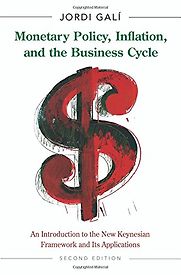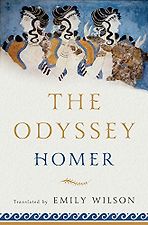Recommendations from our site
“This is a book that I would suggest mostly for people starting a PhD. It’s very technical. It talks about monetary economics and inflation in a very technical way, but of the books of that kind it’s the easiest and gives you an overview of the vision of the so-called New Keynesian model. Jordi is an amazing writer. There is a lot of intuition, despite the use of a lot of maths. It helps you to understand, first of all, how inflation is created in a mathematical model but, most importantly, why we care about it. Jordi says that, in some sense, we care about inflation because of this feedback effect on output—employment and inflation are strictly linked together. A key element of the model economy in the book is price rigidity, firms do not immediately adjust prices. Now, if firms do not adjust prices, if they experience an increase or a decrease in the overall price level, then they need to adjust production in the short run. So if you have higher inflation, then you’re going to have some effect on the output through this mechanism. The book describes this mechanism, and then it describes the optimal monetary policy. The book discusses the connection between inflation and the real side of the economy, and why the central bank should care about inflation. Jordi also explains the conditions under which stabilizing inflation and stabilizing output and employment, in the short run, is exactly the same. This result is known as the ‘divine coincidence.'” Read more...
Federica Romei, Economist
“It is the state-of-the-art—or at least an introduction to the state-of-the-art—in monetary policy. It’s pure orthodox New Keynesianism. So, it has a very specific use and therefore it’s not for everybody. It’s not for everybody who enrols in a PhD programme. It’s not for everybody who enrols in a PhD who wants to do macroeconomics. It is for those people who are enrolling in a PhD, who want to do macroeconomics and, in particular, who want to understand deeply how a central bank works.” Read more...
The Best Macroeconomics Textbooks
Raffaele Rossi, Economist






